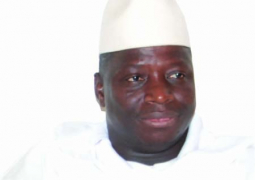The victory of the two men is so popular that even other European press agencies including the vibrant British media cannot shy away from the ‘extraordinary achievements’, prompting some to describe it as ‘remarkable’.
56-year-old Huber, son of a Senegalese diplomat with a German mother, is already known to the German public as he is a popular television actor, and has featured on German TV for years. He is known for acting as Superintendent ‘Harry Johnson’, emanating from the popular crime television series called’ Der Alte’ (The Old Man). He is a member of Chancellor Merkel’s centre-right Christian Democrat Union (CDU) party, which won the recent elections in Germany. He described himself as a ‘film-maker, dental technician, author and consultant’.
51-year-old Diaby in contrast, is representing the Social Democratic Party, SDP. Born in Senegal, with a scholarship, Diaby reportedly moved to East Germany in 1985 and went on to become a chemist. Thus, both were elected for rival left and right political factions to the Bundestag.
Meanwhile, joyful Sene-Gambians who have been following such development seem to care less about which political party the two men belong, but instead praised them for ‘cracking the hard nut of entering Parliament’ despitetheir background.
Daoud Diop, a Senegalese IT worker in Berlin, speaking to The Point recently said that ‘even though the achievement is unprecedented’both men have been very determined and serious with their political ambitions... few years ago it would have been unbelievable’.
Diaby who now represents the state of Saxony-Anhalt, publicly acknowledged that ‘my election into the German Parliament is of historical importance...I am a product of equal opportunities and was given the chance to study as an orphan’, and thus wants to ‘make a difference for other people in this area too’.
During campaigning, the Senegalese recalled that many had thought that Diaby’s ‘campaign was a joke’ as he was ‘only seen riding his bicycle that was locally produced by a company in the area, asking voters simply to cast their votes for him’. He added: ‘Others were driving expensive vehicles, but fortunately democracy here is not about bribing people with money’.
Nonetheless, the locals were convinced that Diaby was part of them and representing their views, and thus started to listen to him more carefully. His ‘Senegalese trade-mark’ of shaking the hands, smiling at anyone he met was also noted.
Diop also recollected that some people had ‘simply walked away’ when he offered them a hand-sake, but Diaby never gave-up and continued talking to anyone who was willing to listen.
‘Diaby always speak the language of the ordinary people and talk about his background, his days in the East, his remarkable mother in law and how he raised his kids...He even spoke about his friends and his life back home in Senegal...It was amazing’.
For Huber, he reportedly doesn’t like the term ‘migrant background’ and simply believes it is ‘unnecessary and not very helpful when promoting integration’.
Nonetheless, he publicly revealed that he is still in contact with Senegal, and in 2002 set up an organization called ‘Afrika Direkt’ which supports children from poor backgrounds. He proudly said that his ‘work for Africa meant so much to him’. In a TV campaign advert, he also called on his fellow citizens to join together in ‘forging a strong Germany’.
Senegalese and Gambians celebrating believe that this is a ‘historic moment’ and, as a result, such determination and hard work must continue. They called on African leaders to support their nationals abroad as they represent an ‘important structure and good name’ of the society they left behind. Senegal is a classic example, they pointed out.
A Senegalese legal consultant, Alioune Toure, strongly emphasised to this correspondent: ‘We gained independence decades ago, and now should cease pointing fingers at others, accept criticism, respect the presidential term limit, the rule of law and adopt democratic principles and values for a decent African future...Our talents must not be disrespected’.
Even though both men were elected on 22 September, and expected to take their seats when Parliament convene by end of October, the excitement continues.
Author:
Alhagie Mbye, The Point’s UK correspondent
Read Other Articles In Article (Archive)
The Doctor
Jun 16, 2011, 2:59 PM


